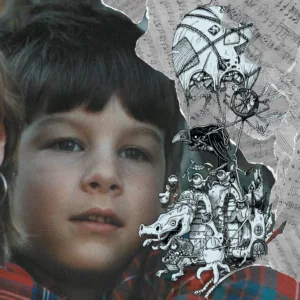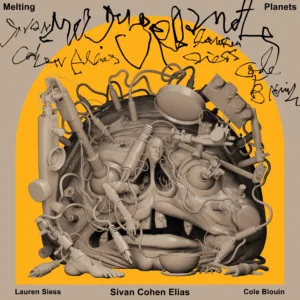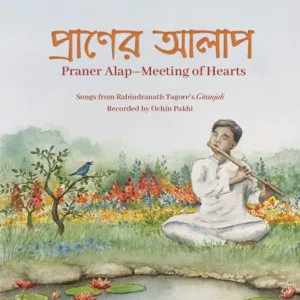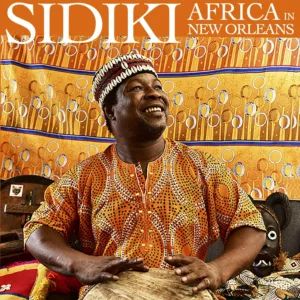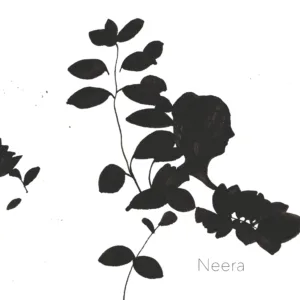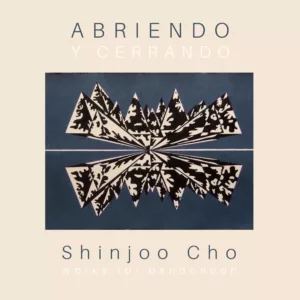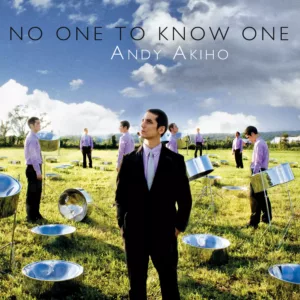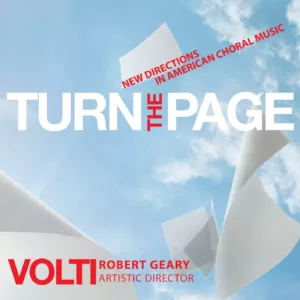Three-Mountain Pass
Van Anh Vo’s Evocative, Groundbreaking Vision for Vietnamese Tradition Vibrates and Sings on her Debut, Three Mountain Pass
Passionate and wildly talented traditional Vietnamese instrumentalist and composer Van-Anh Vanessa Vo knows where the soul of her music lies: in her left hand.
“It brings out all the colors, everything you want to hear, the bending and sliding notes. Otherwise, with just the right hand, the melody feels so dry,” explains Vo. “The right hand is the father who sired me, but the left hand is my mother who raised me.”
The left hand’s color and emotive quality burst through the diverse and intriguing pieces of Three Mountain Pass (Innova; release: September 24, 2013 through Naxos USA). A masterful player of the 16-string dan Tranh—a zither with moveable bridges and the springy, bending tones resembling the koto—and the pitch-bending monochord dan Bau, Vo draws on the dozens of traditional genres found in Vietnam to craft new arrangements and compositions.
Whether setting a sensual 18th-century poem to a newly invented instrument (“Three Mountain Pass”) or completely upending one of Satie’s Gnossiennes, Vo brings virtuosic subtlety and profound emotion to her work, a keen ear for the essence of her roots and their potential resonance with contemporary sounds.
In collaboration with Kronos Quartet (the wonderful chamber music conversation of “Green River Delta”) and fellow Vietnamese trailblazer, guitarist Nguyen Le, in her work with orchestras and Japanese taiko drum ensembles, Vo reveals the great breadth and flexibility of the traditional styles she spent decades perfecting with master musicians and at the conservatory in Hanoi. Now based in the Bay Area, Vo pushes the envelope of the past, engaging sounds and complex, multi-layered concepts to unfurl new spaces for the music she loves.
“I think if you have a love for music, you want to explore more and more and maximize your abilities,” muses Vo, whose mastery of dan Tranh, dan Bau, and 5 other Viet traditional instruments is exceedingly rare. “I’m still doing it, not just with Vietnamese traditional instruments, but I’ve moved to many other instruments around the world, as many as I can.”
Finding the freedom and well of feeling in long-standing forms and age-old instruments comes naturally to Vo, who grew up surrounded by a near cacophony of different music, streaming from the windows and apartments of her childhood neighborhood in Hanoi.
Vo’s father worked as a musician to keep up morale in the North Vietnamese army during the war, accompanying himself on the guitar. Her family was eventually given housing in Hanoi’s remarkable artists’ quarter, where musicians lived choc-a-bloc and a dozen different genres and traditions entwined.
“We’d get up and start to hear people practicing, very early in the morning,” recalls Vo fondly. “In front of me I’d hear Western opera and behind me I’d hear traditional music, traditional opera, people practicing voice and instruments. On my right I might hear western-style pop and on my left I’d hear someone practicing traditional instruments. It all came to me, and I thought it was very inspirational.”
Vo knew from her first lessons in reading music with her father that she would be musician herself, never needing parental insistence to practice and play. In fact, Vo pursued what she wanted to know with an astounding dedication and persistence. It took her three years to win over one of her masters, a brilliant player of the dan Tranh, the late Master The Thiep. She pays homage to her beloved teacher with her own interpretation of “Vong Co,” a classic piece from Southern Vietnamese folk opera. She kept asking for lessons, and he kept saying no, until he took her on as an apprentice, a role that more closely resembles that of adopted daughter than mere music student.
What Vo learned from The Thiep and other master musicians was just as much about improvisation and expression as strict adherence to a canon or approach. Vo would sit back and listen as Master The Thiep whipped out version after version of Vietnamese opera themes, varying them much the way a jazz musician might. Vo applies this spirit of variation and improvised reinterpretation to pieces like Satie’s “Gnossienne No 3,” as Vo’s dan Bau captures both the quirky playfulness of the French composer’s work, as well as his heartache, sliding fluidly through the melody.
This liquid, nimble movement—the left-hand aspect—became a powerful touch point as Vo began working with Kronos on pieces like “Green River Delta,” a lively conversation between Kronos’s rich strings and Vo’s rippling dan Tranh. “The first time they heard the piece, they stopped with awe,” recounts Vo. “When they tried it, the music sounded like an etude, because they didn’t know what note had to vibrate, what was a passing note. I had to teach them the meaning of the left hand.”
The fluid tones the left hand lends echo the contours of the Vietnamese language, as Vo explores in “Mourning,” a piece expressing the aftermath of war and the grief caused by its losses. Based on Vietnamese funeral music, the composition unites three dan Bau—instruments that traditionally play solo because of their distinctive, overpowering qualities. Yet Vo lets them interact, finding the different facets and voices of loss in their plaintive, heartfelt tones.
Vo’s sensitivity to new voices that speak to her roots resounds on the title track, “Three Mountain Pass,” a striking arrangement of a poem by pioneering 18th-century woman poet Ho Xuan Huong, a concubine who decried the hardship faced by women in society. Her poetry is well loved among all Vietnamese people for its witty, multi-layered meanings that are sexually daring and nonconformist, even by today’s standards. Using the vocal style of Vietnamese mediums, Vo digs into the poem’s many layers—its natural beauty, sensual intensity, and forceful statement of feminine power—letting her voice mingle with the booming vibrations of the Hang (a rare percussion instrument invented by eccentric Swiss instrument makers) and the bamboo xylophone (dan T’rung). With similar grace, Vo incorporates the bold sound of taiko drums into some of her works, refusing to let their muscular qualities overwhelm her instruments’ seeming delicacy (“Go Hunting”).
Vo’s urge to innovate while remaining firmly grounded in the traditions she loves has blossomed since she immigrated to the US in the late 1990s, after she met her future husband when on a visit to the States as part of an official artist delegation from Vietnam. “Moving here, to the US, has opened many opportunities for me. Now, I do what I want, and I find a way to express my inner voice and my thinking,” reflects Vo. “As a young woman, when I would practice, my family would always know what emotions I was feeling at that time. They could hear it. I started to write music from those feelings. I feel so good, to be able to express what I feel and share what I feel with my audiences, the common emotions we all share.”
